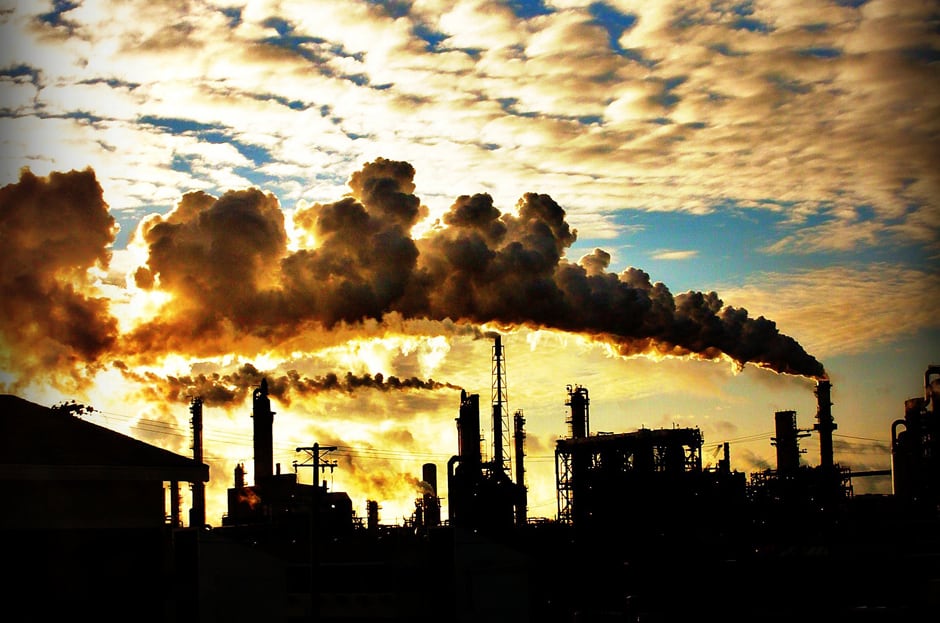In light of accelerating activity from Canadian energy companies, U of T geography professor Danny Harvey is advocating for climate science to combat proliferating pipeline construction across the country.
The National Energy Board (NEB), Canada’s sole regulatory body for the national oil industry, currently refuses to consider the impact of oil pipelines on global warming during their approval process. Harvey challenged this refusal in August during a hearing for the proposed Trans Mountain pipeline, but his motion was denied.
Harvey appealed to the constitutional right to life and health in his motion, providing ample evidence for the direct relationship between the construction of oil sands pipelines and the negative effects of climbing global temperatures. In response, the NEB cited a Supreme Court ruling stating that the right to life and health is not violated in cases that are “unprovable.”
“They’re throwing the precautionary principle out the window,” says Harvey. “The National Energy Board’s mandate is to assess future risks as a result of oil sands development, and they’re failing to do that.”
Harvey’s argument is predicated on a causal link between pipeline construction and oil sands growth — a link that he says is self-evident, but which the board contests in their dismissal. “If you can’t transport the oil, you’re not going to take it out of the ground. And the only way to transport it is to build pipelines galore. Increased operations are directly linked to pipeline expansion… Canada’s goal is to increase [operations] without limit. Profits are never big enough,” he said.
Yet on the issue of climate change, Harvey said, “government policy is ‘don’t talk about it.’”
“The mindset is that oil is here to stay no matter what, so why not expand?” said Harvey.
Canada is sitting on at least 173 billion barrels of recoverable oil, the vast majority of which is located within Alberta’s oil sands. We rank third, behind only Saudi Arabia and Venezuela, in terms of proven oil reserves.
Considering the wealth of energy within our borders, it’s not surprising that oil has substantial influence over Canada’s economic policy. Investment in the oil sands is expected to generate $79.4 billion for the Canadian economy in the next 20 years if the resource is properly developed. National policy recognizes that in order to make money from our oil reserves, companies need the go-ahead to construct extensive oil infrastructure, including trans-provincial and transnational pipelines.
However, if production is increased fourfold, as economic projections assume, total carbon emissions from oil sands production and fuel use will total three per cent of annual global emissions.
Even without this increase, the oil sands already emit a disproportionate amount of greenhouse gases in comparison to other states and industries. If Alberta were a country, it would be the world’s biggest per capita carbon producer.
“Canada doesn’t have a hope in hell of achieving its target CO2 levels by 2020,” Harvey says.
The NEB’s reticence to inhibit pipeline expansion strongly indicates a national prioritizing of economic growth over governable action on global warming. “The [NEB is] doing the government’s bidding,” says Harvey. “And the government has made it clear they don’t want anything to get in the way of pipelines.”
Harvey made it apparent in a recent lecture at UTSC that future fuel needs can be entirely satisfied by renewable energy. Advances in battery technology, he argues, will render oil sands and their pipelines unnecessary for Canada’s future energy infrastructure.
But, Harvey says, the Canadian government has no plans to end production, even with alternatives in sight.
If his last-resort Federal Court appeal is overturned, then it’s clear to Harvey that “the government just won’t accept science.”
In his words, rulings like these “are the signs of a petrostate.”
Malone Mullin is a third-year philosophy specialist.


